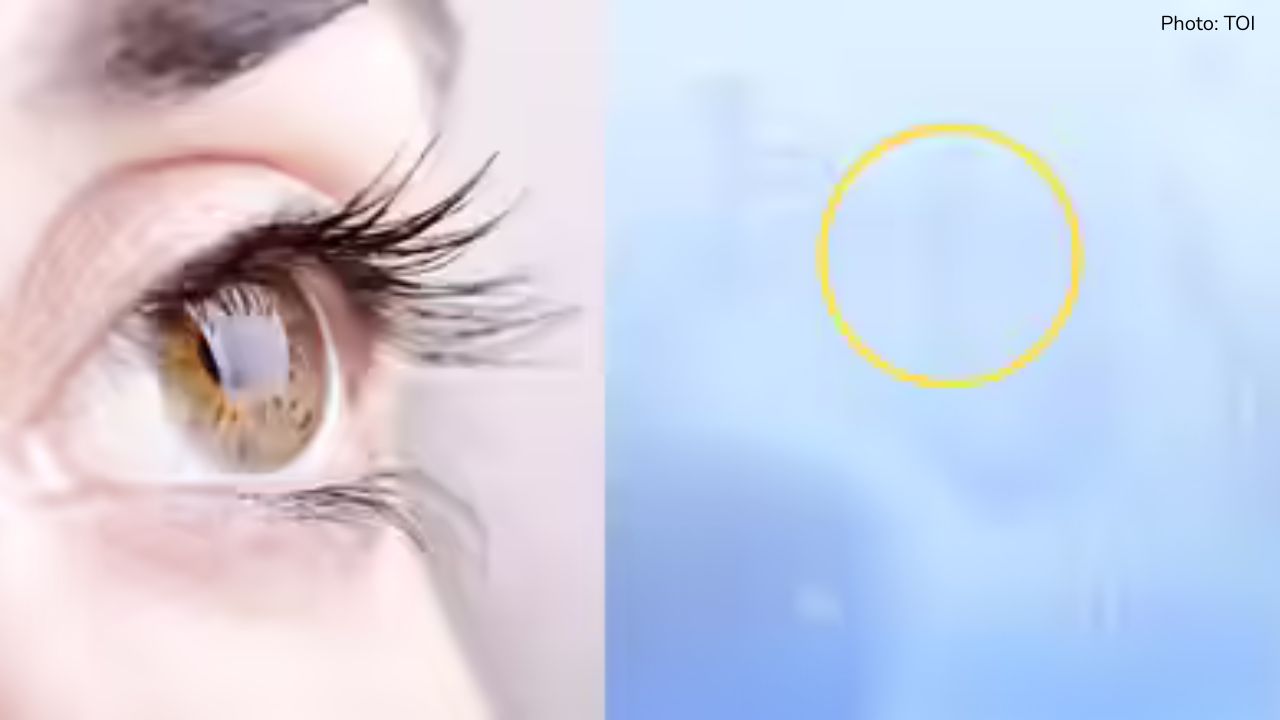
A Nutritionist’s Warm Guide to When to Enjoy Flaxs
Nutritionist Deepsikha Jain recommends 1–2 tablespoons of flaxseeds—morning, before meals or as a sn

Have you ever seen tiny threads, specks or shapes that seem to glide when you move your eyes? These visual “floaters” are a familiar experience for many people. In most cases they’re not dangerous, though sometimes they can signal an eye problem that needs prompt attention.
Ophthalmologists say recognising the reasons behind these spots helps protect long-term vision. As ophthalmologist Dr. Meera Sood notes, “Floaters form when bits of cellular material or gel in the eye cast shadows on the retina. Usually they’re harmless, especially if they appear gradually and don’t interfere with sight.”
Common causes of spots in vision
There are several reasons people notice floaters:
Age-related changes: Over time the vitreous — the gel that fills the eye — can thin and clump, producing floaters. This is a normal, common change and usually not dangerous.
Eye strain or tiredness: Long periods on screens, poor lighting or general fatigue can make you more aware of floaters. Stress may also heighten your perception of them.
Injuries or eye trauma: A blow to the eye can trigger new floaters or flashes of light. In these situations, seek medical advice quickly.
Eye conditions: Sudden onset of floaters or flashes may point to a retinal tear, retinal detachment or bleeding within the eye — all of which require urgent care to safeguard vision.
Medical conditions: Systemic illnesses such as diabetes or uncontrolled high blood pressure can affect eye health and lead to floaters or other visual problems. Regular medical and eye check-ups help catch these early.
When to see a doctor
Most floaters are benign, but these symptoms call for immediate ophthalmic assessment:
A sudden jump in the number of floaters
Seeing flashes of light
A curtain-like shadow or dark area at the edge of your vision
Persistent blurring or loss of vision that won’t clear
Dr. Sood cautions, “If any of these warning signs appear, contact an ophthalmologist right away. Early diagnosis can prevent serious complications and preserve sight.”
How to care for your eyes
Everyday habits can support eye health:
Take screen breaks using the 20-20-20 rule: every 20 minutes, look at something 20 feet away for 20 seconds
Wear sunglasses outdoors to shield your eyes from harmful UV rays
Eat a balanced diet rich in vitamins A, C and E to support eye function
Keep well hydrated and prioritise sleep to reduce strain
Book regular eye examinations to detect problems early
Seeing floaters can be unsettling, but most cases reflect normal ageing or harmless changes inside the eye. Still, sudden appearance of floaters with other warning signs should prompt immediate medical evaluation.
Your eyes are sensitive — noticing changes and acting early with healthy habits and timely doctor visits is the best defence for clear vision in the years ahead.